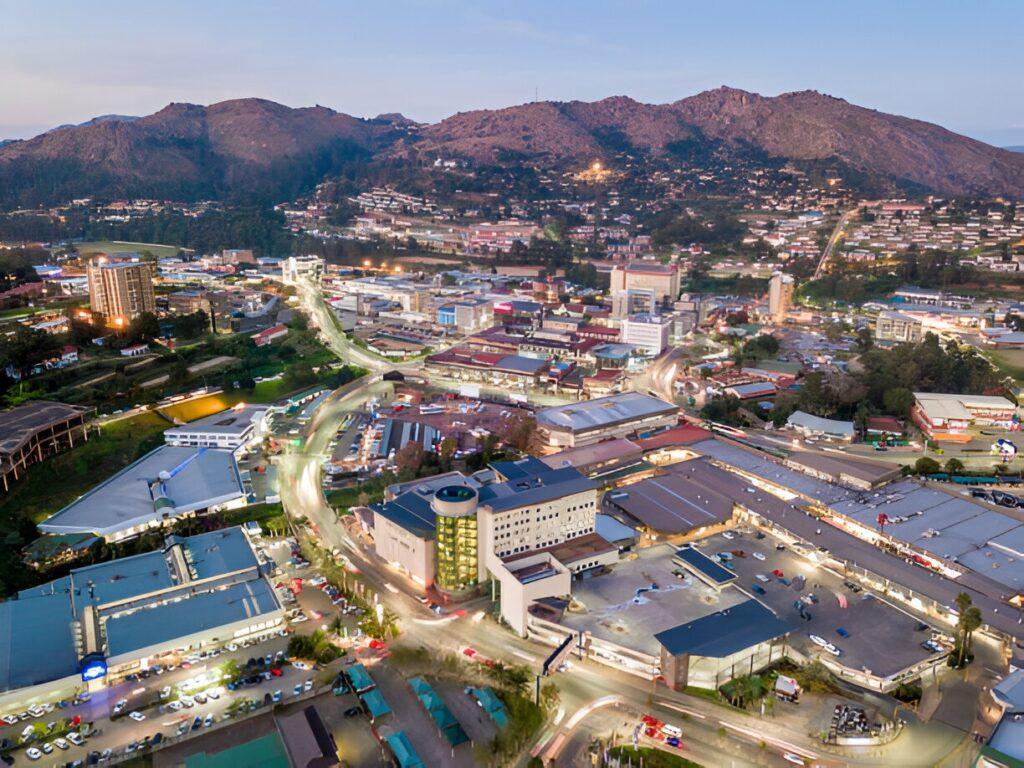Welcome to Journeeo
Eswatini, also known as Swaziland, is a small yet captivating kingdom in Southern Africa. Known for its rich cultural heritage, traditional ceremonies, and scenic landscapes, Eswatini offers a unique experience for those looking to delve into its historical and cultural depths. This article provides an in-depth look at Eswatini’s history, culture, traditions, and practical information for travelers, offering a comprehensive guide to understanding this fascinating destination.
A Glimpse into Eswatini’s Historical Roots
The history of Eswatini is a story of a resilient kingdom that has navigated colonial influences and modern challenges while preserving its rich traditions. The kingdom’s past is marked by its establishment, colonial era, and post-independence evolution.
The Foundation of the Swazi Kingdom

Eswatini’s history dates back to the 18th century when Ngwane III, a prominent leader, unified various clans and established the Swazi Kingdom. This period marked the beginning of a centralized authority that would shape the nation’s future.
- Ngwane III and Early Leadership: Ngwane III is credited with founding the Swazi Kingdom by uniting several clans and establishing a centralized monarchy. His leadership laid the foundation for the kingdom’s political and social structures, which have continued to influence Eswatini’s governance and cultural practices.
- Expansion and Consolidation: Over the years, the Swazi monarchy expanded its territory and consolidated power. Successive kings played crucial roles in defending the kingdom from external threats and maintaining internal stability. The monarchy’s ability to adapt and evolve while preserving traditional values has been a key factor in its longevity.
The Colonial Era and Its Impact

Eswatini became a British protectorate in the late 19th century, a period that introduced new administrative systems and economic changes while also affecting the kingdom’s traditional practices.
- British Protectorate: The British protectorate status brought about significant changes in Eswatini’s administration and economy. While the British maintained the traditional monarchy, they also introduced new governance structures and economic policies that impacted local life.
- Resistance and Adaptation: Despite colonial pressures, Eswatini’s leadership managed to resist complete external control and adapt its traditional practices to the changing circumstances. The kingdom’s resilience during this period is a testament to its strong cultural identity and leadership.
Independence and Modern Era

Eswatini gained independence from Britain in 1968 and was officially renamed from Swaziland to Eswatini in 2018. This period marks the transition from colonial rule to a contemporary kingdom navigating modern challenges.
- Post-Independence Developments: After gaining independence, Eswatini continued to maintain its traditional monarchy while also addressing modern governance issues. The transition to independence involved balancing traditional practices with the demands of a changing world.
- Recent Changes: The renaming of the country to Eswatini in 2018 was a significant cultural and political move, reflecting a renewed sense of national identity and pride. The kingdom continues to face challenges related to political freedoms and economic development while preserving its cultural heritage.
Delving into Eswatini’s Cultural Richness
Eswatini’s culture is characterized by its traditional practices, languages, and artistic expressions. The kingdom’s cultural practices are deeply rooted in its history and offer valuable insights into the Swazi way of life.
Traditional Customs and Celebrations

Swazi culture is marked by vibrant traditions and ceremonies that are integral to community life. These customs reflect the kingdom’s historical values and social structure.
- Incwala Ceremony: The Incwala is a major traditional ceremony held annually to celebrate the harvest and renew the king’s divine right to rule. The ceremony is a grand affair involving rituals, dances, and offerings to the ancestors, symbolizing the unity and continuity of the Swazi people.
- Umhlanga (Reed Dance): The Umhlanga, or Reed Dance, is a prominent cultural event where young women present reeds to the queen mother. The ceremony is a symbol of purity and respect, showcasing the role of women in maintaining Swazi traditions and fostering community spirit.
- Traditional Attire: Traditional Swazi dress is distinctive and colorful, reflecting cultural pride and identity. Women typically wear the Litsala, a beaded necklace, and the Libovu, a short skirt, while men may don traditional garments like the Ingudu, a type of loincloth. These garments are worn during ceremonies and cultural events, emphasizing the importance of traditional attire in Swazi society.
Language and Communication
SiSwati is the official language of Eswatini, with English also widely used for official purposes and in urban areas. Understanding basic SiSwati phrases can enhance interactions with locals and provide a deeper appreciation of the culture.
- Language Diversity: SiSwati is a Bantu language with its own unique phonetic and grammatical features. English serves as a lingua franca in official settings and among diverse groups, reflecting Eswatini’s historical and contemporary connections.
- Cultural Exchange: Learning a few SiSwati phrases and expressions can enrich the travel experience by facilitating communication and demonstrating respect for local customs. Engaging with locals in their language fosters a more meaningful connection and understanding.
Artistic Expressions and Crafts

Swazi culture is expressed through various art forms, including music, dance, and crafts. These artistic expressions play a vital role in ceremonies and daily life.
- Music and Dance: Traditional Swazi music features rhythmic drumming, singing, and dancing. The performances are often part of ceremonial events and social gatherings, showcasing the energy and communal spirit of the Swazi people.
- Craftsmanship: Eswatini is known for its handcrafted items, such as beadwork, wood carvings, and woven baskets. These crafts are not only decorative but also hold cultural significance, representing aspects of Swazi life and heritage.
Tradition and Rituals in Eswatini
Eswatini’s traditions and rituals are integral to the kingdom’s cultural identity. These practices reflect the Swazi people’s spiritual beliefs and social structures.
Spiritual Beliefs and Practices
Traditional spirituality in Eswatini is deeply connected to ancestral worship and the belief in spiritual forces. Ancestral spirits are revered and play an important role in the lives of the Swazi people.
- Ancestral Reverence: The Swazi people honor their ancestors through rituals and offerings. Ancestral spirits are believed to influence daily life and are consulted for guidance and protection during significant events.
- Role of Traditional Healers: Traditional healers, known as Sangomas, are respected for their knowledge of herbal medicine, divination, and spiritual guidance. They play a key role in addressing health issues and providing spiritual support to the community.
Social Structure and Community Life

The social structure of Eswatini is organized around the monarchy, clans, and traditional institutions. Community life is characterized by strong familial ties and communal support.
- Monarchical System: The Swazi monarchy is central to the country’s governance and cultural practices. The king and queen mother are revered figures who uphold traditional values and social harmony.
- Clans and Chiefs: Eswatini is divided into several clans, each led by a chief or headman. These leaders manage local affairs and uphold customary laws, maintaining the traditional social order.
Practical Insights for Visitors
Is Eswatini Safe to Visit?
Eswatini is generally considered safe for tourists, though it is important to be aware of local conditions and exercise standard precautions. Petty crime can occur, so it is advisable to take care of personal belongings and avoid walking alone at night.
- Safety Measures: Stay informed about local safety conditions, use reputable transportation services, and avoid displaying valuable items. Registering with your embassy or consulate can provide additional security and support during your visit.
What Makes Eswatini Noteworthy?
Eswatini stands out for its rich cultural heritage, traditional ceremonies, and scenic landscapes. The kingdom’s unique blend of historical significance and cultural practices makes it a fascinating destination for those seeking an authentic African experience.
- Cultural Celebrations: Events like the Incwala and Umhlanga ceremonies offer a rare opportunity to witness traditional Swazi practices and immerse yourself in the kingdom’s cultural heritage.
- Natural Attractions: Eswatini’s diverse landscapes, including mountains, forests, and game reserves, provide stunning scenery and outdoor adventures. The country’s natural beauty complements its cultural richness, offering a well-rounded travel experience.
Is Eswatini a Free Country?
Eswatini is an absolute monarchy, with the king holding significant power over the government and political life. While the country has a constitution and legal system, political freedoms are limited, and dissent is restricted.
- Political Structure: The king of Eswatini wields substantial authority, and the political system lacks the pluralism found in democratic countries. The monarchy’s central role in governance influences the country’s approach to political and social issues.
- Human Rights Considerations: Human rights organizations have raised concerns about political repression, freedom of speech, and the treatment of opposition. Travelers should be aware of the political context and approach sensitive topics with caution.
Conclusion
Eswatini offers a compelling blend of historical depth, cultural richness, and natural beauty. From its historical origins and colonial past to its vibrant traditions and modern challenges, the kingdom provides a unique and immersive experience. Understanding Eswatini’s heritage, cultural practices, and political landscape enhances the travel experience and fosters a greater appreciation for this hidden gem in Southern Africa.
Embark on a journey to Eswatini and explore its captivating history, vibrant culture, and stunning landscapes. Experience the kingdom’s rich traditions and gain insights into its unique heritage, all while navigating the practical aspects of travel.
Eswatini is generally safe for travelers, though it is advisable to exercise standard precautions. Petty crime can occur, especially in urban areas, so it’s important to be cautious with personal belongings and avoid walking alone at night. Staying informed about local conditions, using reputable transportation options, and registering with your embassy or consulate can enhance safety during your visit.
Eswatini is an absolute monarchy where the king holds significant power over the government and political life. The country has a constitution and legal framework, but political freedoms are limited, and opposition to the monarchy is restricted. Travelers should be aware of the political context and approach sensitive topics with discretion to avoid potential issues.
The Incwala ceremony is a major traditional event in Eswatini, celebrating the harvest and renewing the king’s divine right to rule. It involves the entire nation and features traditional rituals, dances, and offerings to ancestors. The ceremony is a key aspect of Eswatini’s cultural heritage and communal identity.

